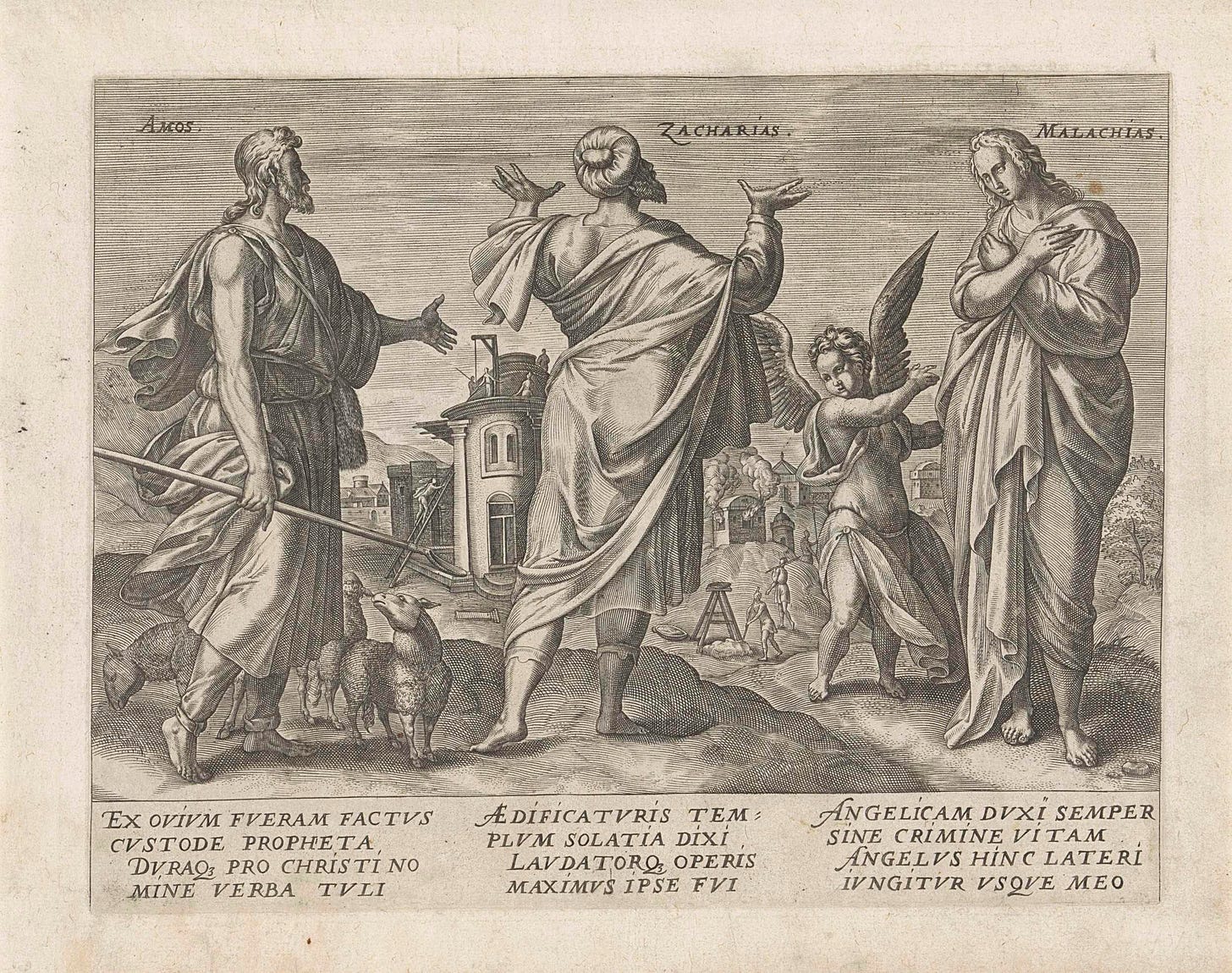Tamuz 5784: What We've Lost—and What We've Gained
🔥 An exploration of how the period of mourning beginning in Tamuz marks both destruction and renewal, exile and redemption, through the lens of our lost nevua (prophecy), as interpreted by Rishonim.*
* And even one Acharon!

Audio (Paid Feature)
Find an audio version of the newsletter here.
In this issue:
In Tamuz, with the fast of the 17th, we begin marking our annual, three-week season of mourning which culminates with Tisha be-Av, remembering all that we've lost as a nation. But we are also profoundly consoled, liturgically and metaphysically, by the task of rebuilding and the promise of coming redemption. One of the ways this tension reveals itself is with the closure of the era of nevua (prophecy), after which the direct Divine communication available to the nation by means of its prophets ceased. Henceforth, the most intimate type of communication from G-d available to humans was through ruach ha-kodesh (holy spirit), a kind of Divine inspiration that is less direct (though still of great significance).
The books of the Tanach that are grouped in the Ketuvim (“Writings”) section were all composed by means of ruach ha-kodesh as opposed to nevua (the books of Neviim, Prophets, of course, are distinguished precisely for having been written by means of nevua). Note, however, that rabbinic sources often use ruach ha-kodesh to refer to a type of nevua, sometimes rendered in English as “the spirit of prophecy.”1 (The distinction of using the term ruach ha-kodesh in juxtaposition to nevua is later.) Does the transition from prophecy to Divine inspiration necessarily indicate a decline in our spiritual status? The answer is elusive in the sources, but the search for the answer uncovers the potential for growth and renewal that exists within this intense, sorrowful period.
Malachi, the Last Prophet
The books of Neviim Achronim (the Latter Prophets), which include Yeshayahu, Yirmiyahu, Yechezkel, and the shorter books of Trei Asar (the Twelve), are not ordered chronologically in our Tanach. However, Malachi is both the last book of Neviim (the last of the Trei Asar) and, according to Chazal (the rabbis of the Talmud), the last of all the prophets, after whom prophecy ceased entirely from Israel:
חַגַּי זְכַרְיָה וּמַלְאָכִי סוֹף נְבִיאִים הֲווֹ
Chaggai, Zecharia, and Malachi were the last of the prophets.
The Rishonim expand on this tradition and solidify it. The northern French peshat commentator R. Yosef Kara (before c. 1060–70) comments, for instance:
אמר להם הנביא לישראל: מיכן ואילך לא יהיו לכם נביאים שמוכיחין אתכם, שבימיו פסקה נבואה מישראל, אבל זכרו תורת משה עבדי – בשביל כך תקרב הגאולה.
The prophet said to the people of Israel: from here going forward, you will not have prophets who rebuke you—for in his day, prophecy ceased in Israel. But, [he says] “Remember the Torah of Moshe My servant,” for on this account the redemption will draw near.
In his long (and fascinating) opening comment to Sefer Malachi, Abravanel (1437–1508) notes, among many other topics:
Keep reading with a 7-day free trial
Subscribe to Stories from Jewish History to keep reading this post and get 7 days of free access to the full post archives.




